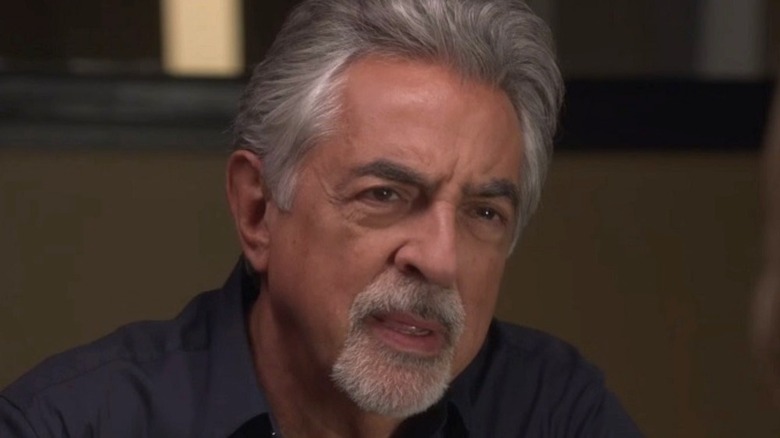What Only Hardcore Criminal Minds Fans Know About Cognitive Interviews
"Criminal Minds" differentiates itself from other police procedurals by focusing on the process of profiling. In the hit CBS series, this involves the FBI's Behavioral Analysis Unit (BAU) anticipating the moves of the most dangerous killers in the United States. They're able to do this with their uncanny ability to think like their criminal counterparts by utilizing their psychoanalytic skills. While the show's BAU branch is based on a real-life FBI investigative department, "Criminal Minds" isn't exactly an accurate depiction of that line of work.
As is sometimes the case with the best crime fiction, "Criminal Minds" has created some false illusions about what goes on behind the scenes in the FBI. It's been convincing, too, as some fans have inquired about BAU jobs for themselves, only to be left disappointed when they learn that the gig isn't as glamorous as the beloved show makes it look. Real FBI profilers aren't responsible for predicting a criminal's next move to the degree shown in "Criminal Minds." Furthermore, their investigative protocols — especially in regard to interview techniques — are more conventional than those carried out by their fictional kin.
The cognitive interviews in Criminal Minds aren't realistic
Cognitive interviews are a common theme in "Criminal Minds." In these scenes, the BAU agents basically hypnotize the witnesses and victims in an effort to bring some clarity back to their foggy memories. Oftentimes, the agent in question appears in the interviewees' memories like some sort of spirit guide, helping them uncover the truth in the process. These scenes are some of the most memorable in the series, but they're sensationalized to an extent. Actual cognitive interviews in law enforcement aren't typically rooted in hypnosis these days, according to the United States Department of Justice. That being said, forensic hypnosis and cognitive interviews aim to tap into some of the same memory systems, so the methods applied in "Criminal Minds" are based in some element of truth.
According to Simply Psychology, cognitive interviews involve a number of memory retrieval strategies, none of which are guaranteed to provide authentic recollections of events. Most of the time, the interviewer tries to reinstate a person's memories by having them retrace their steps on the day they're trying to remember, encouraging them to make use of their five senses that could "trigger the recall of context dependent memories." Other methods include trying to retell the events from a different perspective or go through them in random orders. Then again, those techniques aren't as fun as hypnosis.

